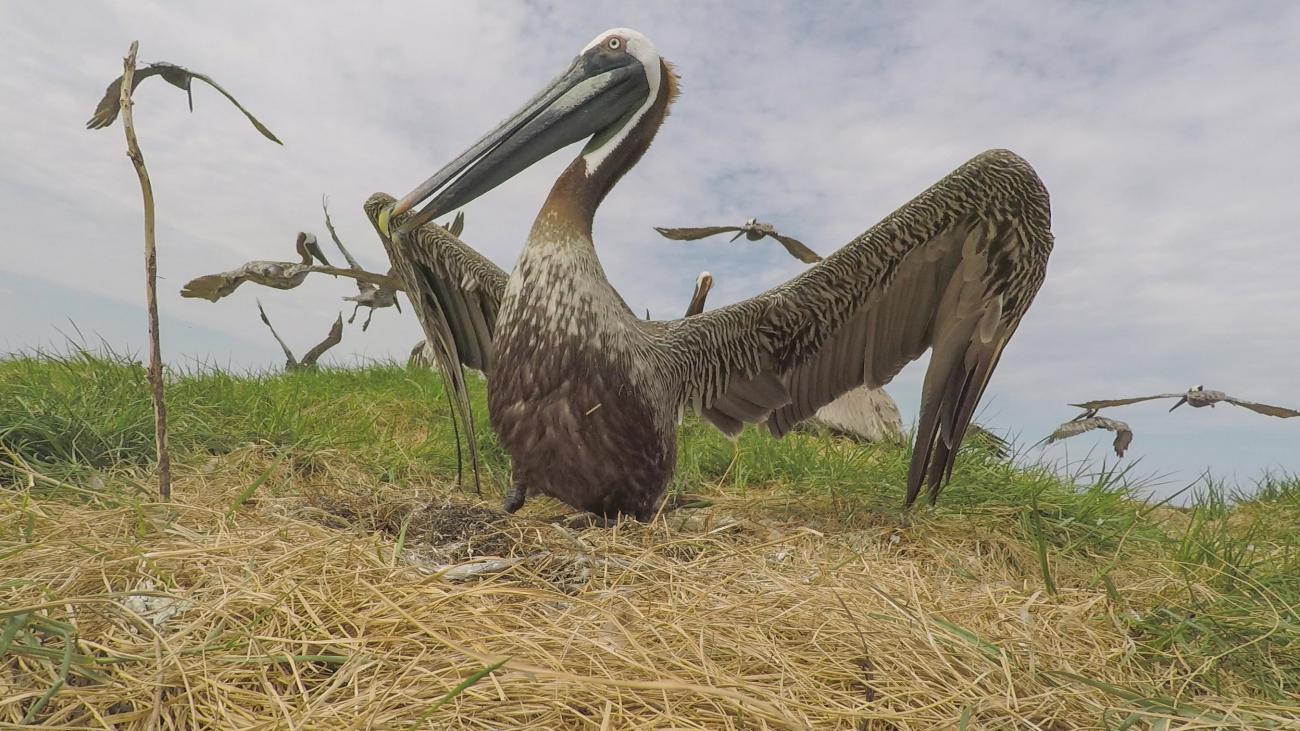In recent weeks, an alarming number of brown pelicans have been discovered stranded on Southern California beaches, prompting concerns among wildlife care centers. The Orange County Wetlands and Wildlife Center in Huntington Beach, for instance, has been inundated with two dozen new patients arriving on Monday alone. This surge in strandings adds to the growing tally of over 150 affected birds across the region since the beginning of April.

Unprecedented Mass Stranding Event
The ongoing mass stranding event has stretched the resources of wildlife centers, with staff and volunteers working tirelessly to rescue and care for distressed pelicans. According to a statement from the Orange County Wetlands and Wildlife Center, the cause of this phenomenon remains unknown, adding to the urgency of the situation. The sudden influx of patients, primarily observed in the past week, has presented significant challenges due to the birds’ deteriorating health conditions upon arrival.
Search for Causes
Veterinarians and experts are grappling with identifying the underlying cause of the widespread illness affecting brown pelicans. Elizabeth Wood, a veterinarian at the wildlife center, highlights the similarities between the current event and a previous mass stranding episode two years ago. While various hypotheses have been proposed, including adverse weather conditions and fluctuations in fish supply, conclusive evidence remains elusive. The overarching concern revolves around the scarcity of fish, a vital component of the pelicans’ diet, potentially exacerbating their physical debilitation.
Financial Strain and Urgent Appeal
The surge in rescued pelicans has strained the capacity of wildlife centers, necessitating the creation of specialized facilities to accommodate the growing number of patients. Moreover, the financial burden associated with their care has become increasingly daunting, with each patient costing $45 per day. Center officials have issued an urgent appeal for financial support from the public to address the escalating costs incurred in responding to this crisis. The critical first few hours of care are pivotal in determining the survival prospects of the affected seabirds, underscoring the need for immediate assistance.

Hope for Recovery
Despite the challenges, veterinarians remain hopeful that the stranded pelicans can be rehabilitated with intensive care and support. Prompt interventions, including supplemental heat to regulate body temperature, can significantly improve their chances of survival. Once stabilized and demonstrating signs of improvement, the rehabilitated pelicans are returned to their natural habitat, offering a glimmer of hope amidst the ongoing crisis. The collaborative efforts of wildlife organizations, volunteers, and concerned individuals are essential in safeguarding the well-being of these majestic seabirds and preserving their vital role in coastal ecosystems.
